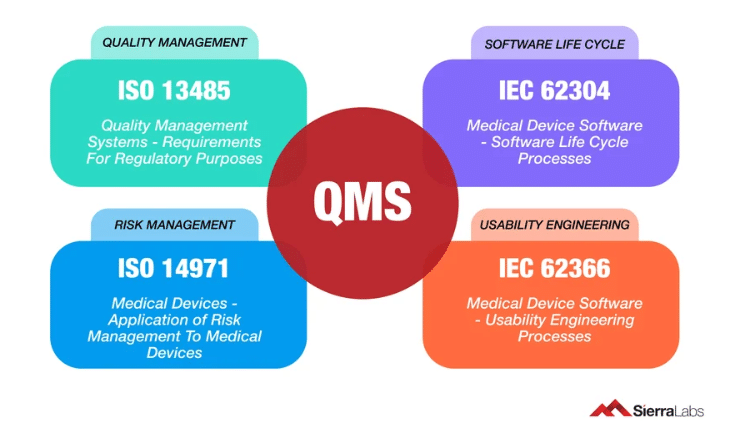The Food and Drug Administration (FDA) recently announced a new guidance program for the life science industry regarding data integrity. This FDA guidance draft is currently open & available for the industry to comment on and provide feedback. Additionally, the FDA regulatory process that looks to be initially targeted by the food and drug authority includes:
- Investigational New Drug Application (IND)
- New Drug Application (NDA)
- Abbreviated New Drug Application (ANDA)
- Biologic License Application (BLA)
Code of Federal Regulations
The guidance draft cites several different code of federal regulation (CFR) that are being reviewed and analyzed during this process. Specific CFR federal regulations mentioned include:
- 21 CFR 11
- 21 CFR 50
- 21 CFR 56
- 21 CFR 58
- 21 CFR 210
- 21 CFR 211
- 21 CFR 312
- 21 CFR 601
- 21 CFR 820
Data Integrity
Specific use cases mentioned by FDA include data integrity throughout the clinical data management process in bioavailability (BA) & bioequivalence (BE) studies. Further, the FDA guidance provides initial suggestions to optimize data integrity success by focusing on three specific drivers:
- Users or applicants in clinical trial
- Site management of clinical trial
- Quality management system for clinical trial
Finally, FDA provides best practices & recommendations for risk control and risk management. Understanding how to maintain good lab practice & clinical research success is essential for all participants.
FDA Guidelines
One of the primary objectives of the data integrity draft is to align FDA expectations with the clinical data being submitted in pharmacologic studies. Additionally, clinical data submitted by a drug sponsor for FDA drug approval must be:
“accurate, complete, and reliable, and that industry maintain data integrity throughout the data lifecycle of the product(s) or biologic therapeutic(s).”
Finally, new concerns are being raised about the evaluation of bioequivalence and bioavailability study data submitted during the FDA regulatory process. FDA highlights specific comments about regulatory concerns during in vivo pharmacology studies. The regulatory documentation lists specific areas adding to the erosion of data integrity based on FDA inspection experiences in the field:
- Patient testing sites
- Clinical testing sites
- Analytical testing sites
Legal Regulation
The FDA guidance begins with reminding drug sponsors that they bear the responsibility of quality assurance even if a contact manufacturing organization (CMO) is engaged. Additionally, confirming a contract development and manufacturing organization (CDMO) has confidentiality processes in place is essential.
For drug sponsors who are submitting a FDA new drug application, ICH guidelines and FDA guidance should be followed by external vendors who are conducting the elements of study-related activity. Finally, clinical data being generated through bioavailability and bioequivalence studies must be durable & reliable in nature, and properly documented in a quality management system (QMS).
Testing Site
The regulatory guidance goes on to elaborate about the monitoring and oversight strategy needed for clinical testing. Specific drivers listed for analysis when selecting a drug manufacturing partner include:
- Personnel Education
- Personnel Experience
- Personnel Training
Manufacturing standards and expectations should be documented clearly in a formal agreement. Additionally, FDA highlights that regulatory requirements for clinical study activities should be documented and followed, including:
- Clinical study protocol
- Clinical study procedure
- Clinical study process
Finally, FDA recommends that bioanalytical analysis should include closer oversight and monitoring. Any CMO or CDMO must have documented analytical methods in their quality management system. Further, all analytical methodologies must follow applicable FDA regulations and be included in the QMS standard operating procedures (SOP).
Quality Management System
The FDA guidance transitions to describe database integrity and why any clinical services provider you choose must “use a quality management system to help ensure data integrity”. This includes testing sites managing a quality management system and efficacy of “data governance throughout the data lifecycle”.
Records Management
The operations team supporting the clinical research management should review the QMS using a pre-planned schedule, per the FDA guidance. All data governance used to store and retrieve information in the clinical trial management system should replicate the reliability & durability of the QMS.
Additionally, data integrity across the QMS would focus on each unique phase of the collection process. FDA recommends employees responsible for quality updates consider isolating job responsibilities between the separate data lifecycle phases to help reduce unintentional mishaps.
Clinical Technology
Using modern technology is recommended for all employees who are responsible & can impact data quality. Specific systems mentioned in the regulatory guidance that can improve data integrity include:
- Computer hardware or related systems
- 362 software for security or performance
- Peripheral devices, networks or cloud infrastructure for connectivity
- Any associated IT documents for usability (e.g. SOP manual)
Metadata
The guidance goes on to explain more about classification & ensuring that metadata is correct. Metadata, as described by FDA, is “data about data” and provides clarifying information to the agency. Common types of metadata quality concerns are listed as examples:
- Missing date/time stamp for when data was acquired
- Incorrect measurement units or documentation
- Missing user ID’s of the team who conducted data testing or data analysis
Sample Analysis
An important facet of the FDA guidance discusses sample analysis & if the clinical evaluation is completed at a location different from the original testing site. Employees conducting the clinical evaluation should be familiar with good clinical practice & fully understand the study protocol, various test methods that were used, and any quality management system SOPs to follow.
Further, different types of instruments & clinical equipment used during the sample analysis should be “calibrated, maintained and serviced” per FDA. The regulatory guidance cites several examples that should follow manufacturer service guidelines, including:
- Balances & pipettes
- Centrifuges & spectrometers
- Liquid chromatographs
- Refrigerators & storage freezers
Quality Assurance and Quality Control
Managing the risk associated with a QMS is an important facet of the FDA guidance. A quality assurance program should be implemented, including standard operating procedures that limit access control & processes to isolate a data breach. Further, implementing a quality control program can help find and remedy data integrity flaws. An efficient quality control program should include:
- Mapping of standard processes & risk control
- Employee training & knowledge gaps
- Difference between unintentional & intentionally compromised data
Corrective Action and Preventative Action
If data integrity deviations are identified in a quality control analysis, FDA recommends a corrective and preventative action (CAPA) program be launched. Additionally, the CAPA would look at all relevant processes and tasks as a whole rather than isolating a repeat occurrence. The recommended best practices for a quality control plan include:
- Assemble & examine information for review
- Identify real & possible problems during the review
- Explore problems & create appropriate CAPA
- Verify & validate the success of the CAPA
- Communicate updated CAPA success to applicable teams
- Document activity & intelligence for management review
FDA Submission
Any member of the industry who would like to submit comments to FDA can do so via the portal listed in the Federal Register: (https://www.regulations.gov). All FDA submission comments to the food and drug authority are considered public information and should include your full name and contact information.
About RCA’s Pharmaceutical Consulting Services
Regulatory Compliance Associates (RCA) has helped thousands of pharmaceutical companies meet regulatory, compliance, quality assurance, and remediation challenges. With more than 20 years of experience with FDA, Health Canada, EU and global regulatory agencies worldwide, Regulatory Compliance Associates® offers leading pharmaceutical consultants. We’re one of the few pharma consulting companies that can help you navigate the challenges associated with industry regulations.
Our pharmaceutical consulting firm includes over 500 seasoned FDA, Health Canada & EU compliance consultants and regulatory affairs experts who understand industry complexities. It’s a pharma consultancy founded by regulatory compliance executives from the pharmaceutical industry. Every pharmaceutical industry consultant on the Regulatory Compliance Associates team knows the unique inner workings of the regulatory process.
Client Solutions
Whether you’re in the product planning, development or pharmaceutical lifecycle management stage or need a remediation strategy for a compliance crisis, Regulatory Compliance Associates will guide you through every pharmaceutical consulting step of the regulatory process. Our pharmaceutical consulting Experts will create a customized approach depending on your product and company’s individual needs. Our regulatory compliance clients include:
- Companies new to FDA, Health Canada or EU regulations and regulatory compliance
- Start-up organizations with novel submissions to 510(k) submissions from multi-national corporations
- Investment firms seeking private equity due diligence for pre-acquisition and post-deal research
- Law firms seeking pharmaceutical consulting firm expertise in the remediation of warning letters, consent decrees, 483’s or import bans
Regulatory Affairs
Regulatory affairs is Regulatory Compliance Associates backbone. We exceed other pharma consulting companies with industry experts experienced in complexities of the pharmaceutical and biopharmaceutical industries. Our pharma consulting expertise spans all facets and levels of Regulatory Affairs. Additionally, we specialize in Regulatory Support for New Products to Life Cycle Management, Outsourced Regulatory Affairs, Submissions, Training, and more.
As your partner, we can negotiate the potential assessment minefield of regulatory compliance services with insight, hindsight, and the clear advantage of our breadth and depth of knowledge and regulatory compliance consulting. We offer the following pharma consulting regulatory affairs services for pharmaceutical companies.
- New Product Support
- Product Lifecycle
- Other Regulatory Services
- Combination Products
Compliance Assurance
The regulations process surrounding pharmaceutical companies can be tricky for even the most experienced industry veteran to understand. Just one misstep could mean significant and lasting consequences for your business. At Regulatory Compliance Associates, we offer the pharma consulting experience and pharma consultants necessary to guide you through the quality compliance process.
- Assessments
- Audits
- Regulatory Agency Response
- Preparation and Training
- Inspection Readiness
- Data Integrity
Quality Assurance
Regulatory Compliance Associates Quality consulting includes assessments, strategy, implementations, staff augmentations, and identification of quality metrics to ensure continuous improvement. Our pharma consultants understand the strategic thinking needed to align your business needs and goals. Regulatory Compliance Associates quality assurance services include quality experts with experience spanning major corporations and start-ups. Our pharmaceutical consulting firm knows firsthand how to achieve, maintain, and improve quality. Finally, our regulatory compliance services team excels in transferring continuous improvement knowledge to your organization.
- 21 CFR Part 11
- Data Integrity
- Manufacturing Support
- Facility Support
- Quality Metrics
Remediation Services
Regulatory Compliance Associates has a proven remediation services approach to managing FDA Warning Letters, Consent Decrees, Remediation and other serious regulatory situations. Our pharma consultants know how to partner with executive, legal, and communication teams. Each RCA pharma consulting Expert will develop a response that will be accepted by the regulatory agency and be realistic to execute.
Regulatory Compliance Associates pharma regulatory consultants will develop a comprehensive proof book of documented evidence demonstrating the corrective action taken to remediate non-compliant issues. In addition, each Regulatory Compliance Associates pharma consulting Expert understands compliance enforcement. We’ll prepare a comprehensive pharma consulting strategy to assist in your remediation efforts, drive continuous improvement, and maintain regulatory compliance with the regulations.
- Regulatory Action
- Regulatory Compliance
- Regulatory Enforcement
- Warning Letter
- 483 Observation
- Oversight Services
- Risk Management Plan
About Regulatory Compliance Associates
 Regulatory Compliance Associates® (RCA) provides pharmaceutical consulting to the following industries for resolution of life science challenges:
Regulatory Compliance Associates® (RCA) provides pharmaceutical consulting to the following industries for resolution of life science challenges:
- Life Sciences
- Pharmaceutical
- Biologic & Biotechnology
- Sterile compounding
- Medical device
- Lab Testing
We understand the complexities of running a life science business and possess areas of expertise that include every facet of R&D, operations, regulatory affairs, quality, and manufacturing. We are used to working on the front lines and thriving in the scrutiny of FDA, Health Canada, MHRA and globally-regulated companies.
As your partners, Regulatory Compliance Associates can negotiate the potential minefield of regulatory compliance and regulatory due diligence with insight, hindsight, and the clear advantage of our unique expertise and experience.
- Founded in 2000
- Headquartered in Wisconsin (USA)
- Expertise backed by over 500 industry subject matter experts
- Acquired by Sotera Health in 2021
About Sotera Health
The name Sotera Health was inspired by Soteria, the Greek goddess of safety, and reflects the Company’s unwavering commitment to its mission, Safeguarding Global Health®.
Sotera Health Company, along with its three best-in-class businesses – Sterigenics®, Nordion® and Nelson Labs®, is a leading global provider of mission-critical end-to-end sterilization solutions and lab testing and advisory services for the healthcare industry. With a combined tenure across our businesses of nearly 200 years and our industry-recognized scientific and technological expertise, we help to ensure the safety of over 190 million patients and healthcare practitioners around the world every year.
We are a trusted partner to 5,800+ customers in over 50 countries, including 40 of the top 50 medical device companies and 9 of the top 10 pharmaceutical companies.
Commitment to Quality
Our Certificate of Registration demonstrates that our Quality Management System meets the requirements of ISO 9001:2015, an internationally recognized standard of quality.



 EUA authority is more common recently due to the widespread threat of COVID-19, which has infected millions of people worldwide. The FDA granted EUA approvals for a variety of items, including vaccines and new testing methods.
EUA authority is more common recently due to the widespread threat of COVID-19, which has infected millions of people worldwide. The FDA granted EUA approvals for a variety of items, including vaccines and new testing methods.
 Regulatory Compliance Associates® (
Regulatory Compliance Associates® (